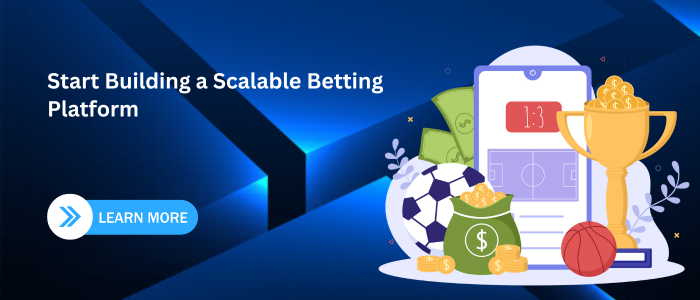Introduction
The online betting industry is growing rapidly as mobile users look for fast, secure, and intuitive platforms, and Betsul has become a leading example in Latin America with its clean interface, strong sportsbook, real-time odds, and smooth betting experience. As regulated markets expand and user expectations rise, more entrepreneurs are exploring how to create reliable betting platforms that deliver the same level of performance, security, and regulatory compliance. This guide covers the full development roadmap, including features, technology, licensing, and monetization.
Understanding the Betsul Model
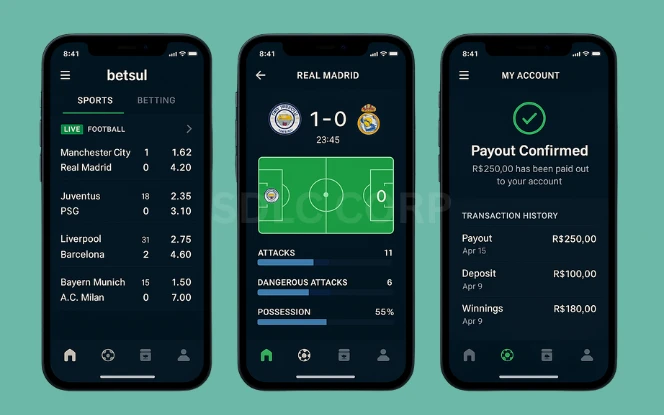
Betsul offers a user-friendly, secure, and legally compliant environment for sports betting, built on features that enhance trust, engagement, and real-time performance. Its core strengths include:
Live betting across major sports such as football, basketball, tennis, and more
Multiple payment gateways with fast, reliable withdrawals
Real-time odds, match statistics, and score updates for accurate in-play decisions
Strict compliance with regional gambling regulations
Understanding these fundamentals is essential when creating a sports betting app like Betsul that can compete effectively in a rapidly expanding marketplace
Market Research and Business Strategy
Before you start development, carry out focused market research to validate both demand and regulations in each target region. This should include:
Identifying target markets and legal frameworks (e.g., Brazil, India, UK)
Analyzing key competitors such as Betsul, Bet365, 1xBet, DraftKings, and regional operators
Defining your unique value proposition (USP), whether that’s live streaming, niche sports coverage, advanced analytics, or crypto betting options
Next, translate your research into a clear business plan that covers:
Licensing strategy for each jurisdiction you plan to operate in
Marketing channels such as SEO, affiliates, influencers, and paid campaigns
Revenue model, including margins on odds, ad placements, VIP tiers, and loyalty programs
Key Features of a Betting App
To build a platform comparable to Betsul in performance and user experience, your app should include:
1. User Registration and KYC
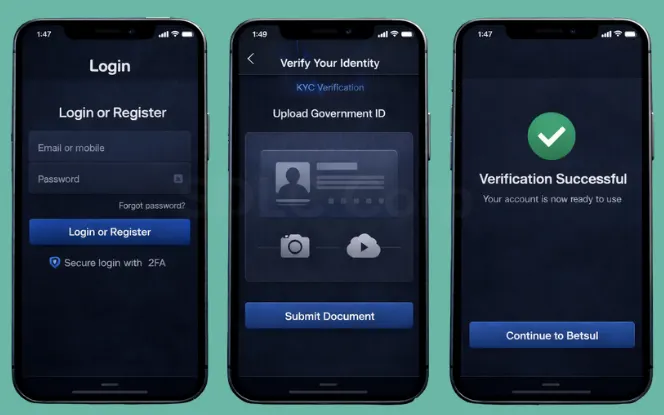
Secure sign-up and login with optional two-factor authentication (2FA)
KYC verification supported by ID proof, address validation, and automated checks
2. Sportsbook Integration
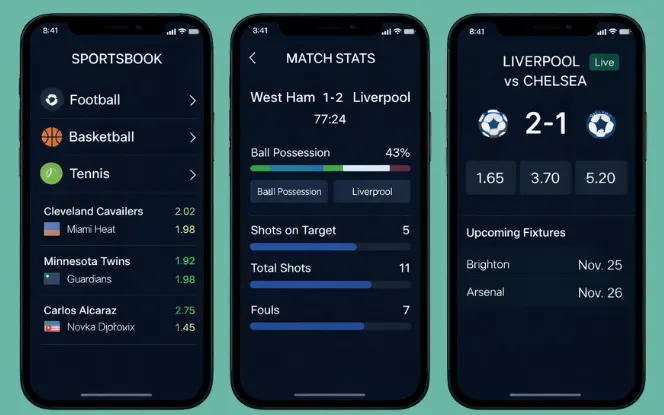
Odds integration for a wide range of sports and events
Real-time updates, schedules, and match statistics to support informed betting decisions
3. Live Betting
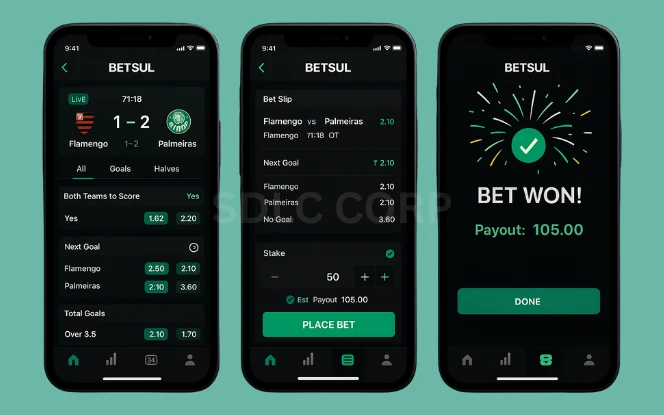
Dynamic odds and live betting opportunities updated throughout the game
Auto-settlement of bets with real-time dashboards for tracking outcomes
4. Multiple Bet Types
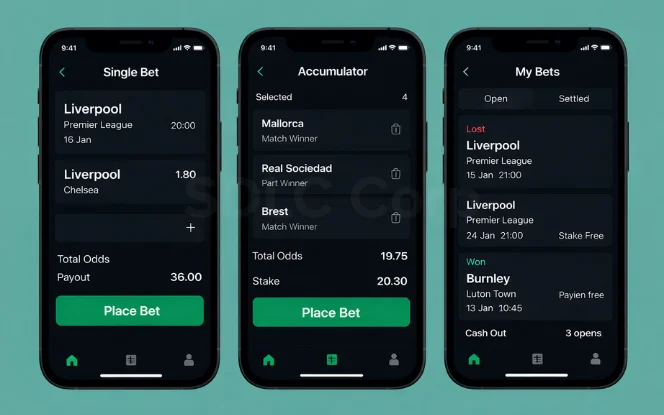
Single, combo, and system betting options for flexible wagering
Early cash-out support and a clear bet history tracker for better control and transparency
5. Wallet and Payments
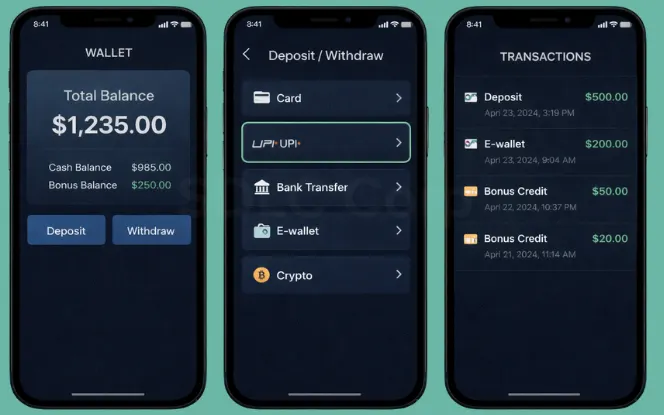
Deposit and withdrawal options including cards, UPI, e-wallets, bank transfers, and crypto
Bonus credit system with detailed transaction logs for full transparency
6. Admin Panel
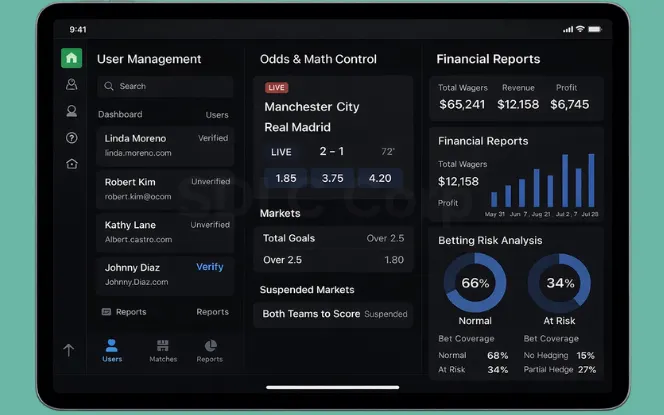
User management, payouts, bet validation, and odds adjustments
Reporting dashboards that track platform activity, revenue trends, and risk exposure
7. Push Notifications
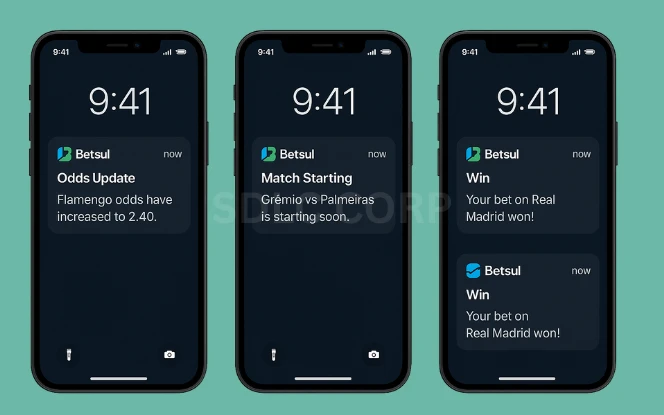
Alerts for live matches, odds changes, and win/loss updates
Personalized notifications based on user preferences, betting history, and favorite teams to improve engagement
8. Responsible Gambling Features
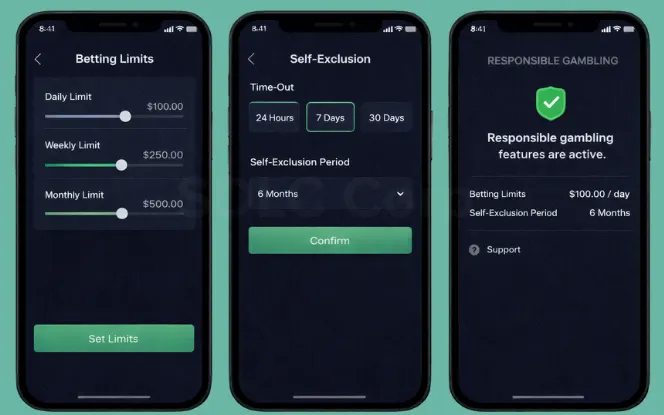
Self-exclusion options, time-out tools, and customizable betting limits to promote responsible gaming
These features form the foundation of a scalable and compliant online betting platform development strategy.
Technology Stack

A stable and secure technology stack is essential for handling real-time betting transactions, ensuring platform reliability, and maintaining user trust.
Frontend
Flutter or React Native for efficient cross-platform development
Kotlin (Android) and Swift (iOS) for high-performance native apps
Backend
Node.js or Python (Django/FastAPI) for scalable, event-driven performance
PostgreSQL or MongoDB for secure and flexible data management
Redis for ultra-fast caching of odds, events, and live data
APIs and Integrations
Sports data providers: Betradar, Sportradar, Betfair
Payment gateways: Stripe, Razorpay, PayPal, Coinbase
Geolocation, KYC, and AML services: Onfido, Jumio
UI/UX Design Principles
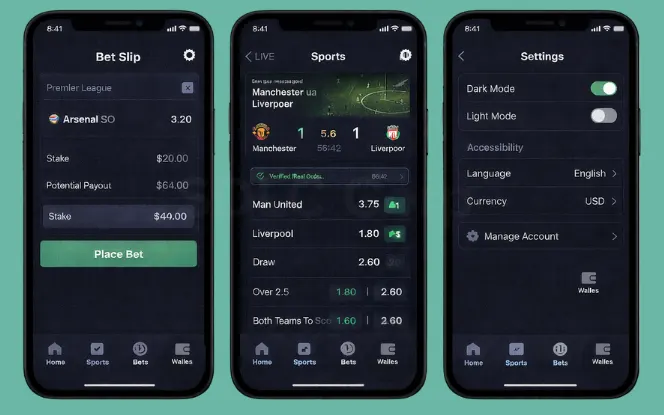
Great betting apps like Betsul succeed because of intuitive, high-clarity design that keeps users engaged with minimal friction. Focus on:
Easy navigation supported by a clean dashboard and streamlined betting slip
Real-time animations for odds updates and in-play betting activity
Dark and light mode options for better visual comfort
Multi-language and multi-currency support to serve diverse user groups
Legal Compliance
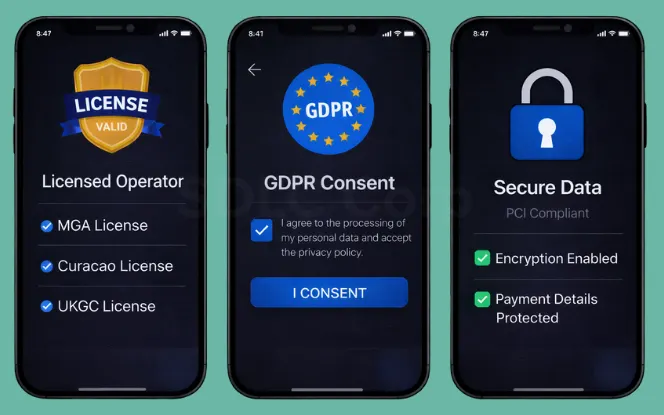
Operating a betting app without proper legal authorization is extremely risky. Ensure that:
You obtain a valid license from recognized authorities such as MGA, Curacao, or UKGC
Your platform complies with local gambling laws in every region you target
All personal and payment data is securely stored and encrypted, following GDPR and PCI-DSS requirements
Monetization Strategies
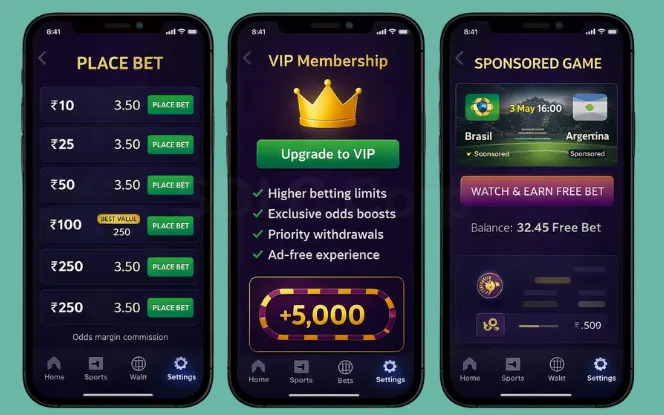
There are multiple revenue streams available:
Betting Margins: Commission on odds.
Ads and Sponsorships: In-app banners or sponsored games.
VIP Memberships: Loyalty bonuses, exclusive perks, and early access.
Affiliate Partnerships: Revenue share with influencers or sports portals.
Development Phases
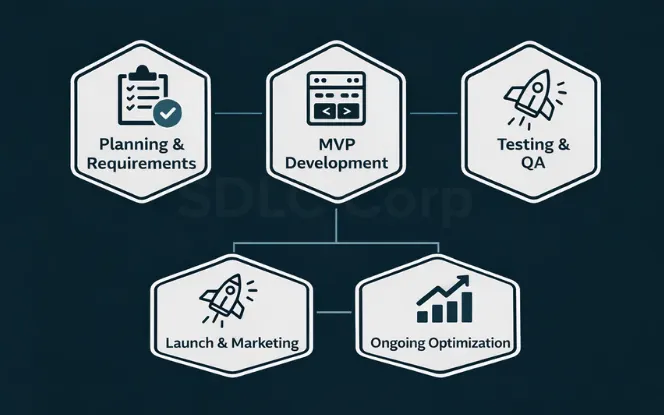
1. Planning & Requirement Gathering
Define the complete feature list
Create design wireframes for core screens
Outline compliance and licensing requirements
2. MVP Development
Focus on user registration, wallet, and the main betting dashboard
Integrate real-time odds feeds and secure payment systems
3. Testing & QA
Functional, security, and performance testing
Regulatory audits required for licensing approval
4. Launch & Marketing
Soft launch in select markets
Aggressive marketing through sports influencers, Telegram groups, and sports news portals
5. Ongoing Optimization
Continuously add new sports, events, or gaming options to expand engagement
Monitor KPIs and analyze user behavior to refine features and improve performance
Marketing & User Acquisition
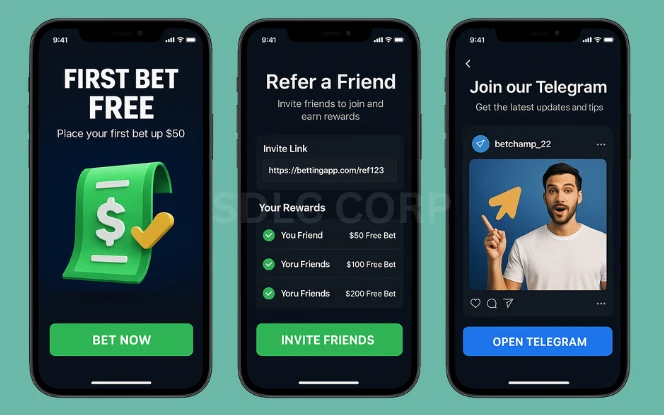
Effective marketing is essential to grow your user base:
SEO and ASO: Target relevant keywords such as betting app development and sports betting app like Betsul
Referral Programs: Reward users for inviting friends
In-app Promotions: Offer first-bet bonuses, cashback deals, and streak-based rewards
Influencer Marketing: Collaborate with streamers, athletes, and sports bloggers to expand reach
Scaling Your Betting App
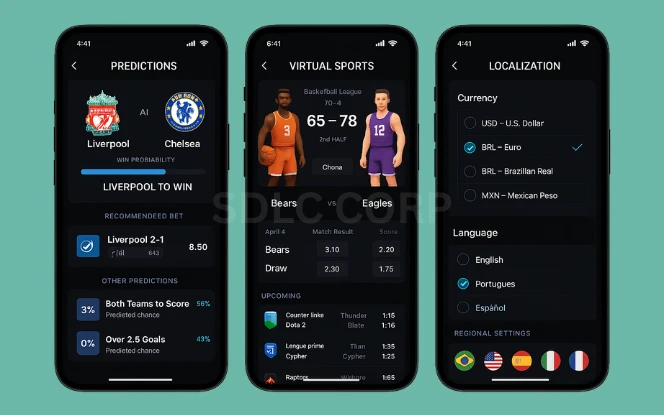
To grow beyond MVP:
Add virtual sports and casino games to expand your content offering
Integrate AI-driven odds predictions for deeper user engagement
Localize content for international audiences to improve regional relevance
Scale infrastructure using AWS or GCP for higher performance and reliability
Conclusion
Developing a betting app like Betsul involves far more than writing code. It requires careful planning across licensing, payments, real-time odds integration, security, and user experience to ensure the platform performs reliably under live conditions. With the right team, technology stack, and compliance strategy, you can create a secure, scalable, and profitable betting platform that meets the expectations of modern users.
Whether your goal is to serve niche markets or expand globally, building on a solid foundation of strong UI/UX design principles will help you stay competitive, innovative, and fully compliant in an industry where precision and trust matter most.
FAQ's
1. Is It Legal to Build and Operate a Betting App?
Yes, but it depends on your target market. Every country has its own regulations:
- Brazil: Legal and regulated under recent legislation.
- India: Gray area—skill-based games are allowed; sports betting is largely unregulated.
- UK: Fully legal under UK Gambling Commission (UKGC).
You must acquire licenses (e.g., MGA, Curacao, UKGC) and ensure your app adheres to local laws and data privacy norms like GDPR and PCI-DSS.
2. How Does Betsul Generate Revenue?
Betsul monetizes through:
- Betting margins (the house edge on odds)
- Ads and sponsorships
- VIP memberships with premium features
- Affiliate marketing with sports portals or influencers
3. How Much Does It Cost to Develop a Betting App Like Betsul?
Costs depend on complexity, but a rough range:
- MVP: $40,000–$70,000
- Full-featured app: $100,000–$250,000+
Costs cover UI/UX, backend, KYC, payments, sports odds integration, QA, and compliance.
met, consectetur adipiscing elit. Ut elit tellus, luctus nec ullamcorper mattis, pulvinar dapibus leo.
4. What Are the Essential Features to Include?
Core modules:
- User Registration + KYC
- Sportsbook integration (live odds/stats)
- Live & pre-match betting
- Wallet and payment gateways
- Bet history and dashboards
- Push notifications
- Admin panel for risk management
- Responsible gambling controls
5. Which Tech Stack is Recommended for Building a Betting App?
- Frontend: React Native or Flutter (cross-platform), Kotlin (Android), Swift (iOS)
- Backend: Node.js or Python (Django)
- Database: PostgreSQL or MongoDB
- Caching: Redis
- APIs: Sportradar, Betfair for odds; Onfido/Jumio for KYC; Stripe/Coinbase for payments
6. How Do I Source Live Betting Odds and Sports Data?
Use premium APIs like:
- Sportradar
- Betfair Exchange
- Betradar
These offer real-time odds, match stats, schedules, and result feeds.
7. How Long Does Development Take?
- MVP: 3–5 months
- Full version: 6–10 months, depending on scope, licensing, and compliance audits.
8. Do I Need a Gaming License for Each Country I Operate in?
Not always. Some licenses (like Curacao or MGA) offer global coverage, but for countries with strict laws (UK, US states, Brazil), you must obtain local licensing or partner with a licensed entity.
9. How Do I Ensure My App is Secure?
Implement:
- End-to-end encryption for transactions
- Secure authentication (2FA, biometrics)
- Regular security audits
- GDPR and PCI-DSS compliance
- KYC/AML systems for fraud prevention
10. How Can I Promote the Betting App?
Use a multi-channel marketing approach:
- SEO & ASO for app stores
- Referral programs with bonuses
- Influencer marketing (sports streamers, athletes)
- Telegram, Reddit & forums targeting betting communities
- In-app promotions: cashback, streak rewards
11. What Are Common Challenges in Betting App Development?
- Navigating legal and licensing landscapes
- Securing real-time data feeds
- Managing user trust and fraud
- Handling payment issues, especially crypto and cross-border
- Real-time performance at scale (live betting is resource-intensive)
12. Can I Integrate Cryptocurrency Payments?
Yes. Using APIs like Coinbase Commerce or BitPay, you can accept:
- Bitcoin
- Ethereum
- USDT and more
Ensure compliance with local financial laws and AML/KYC norms when using crypto.

